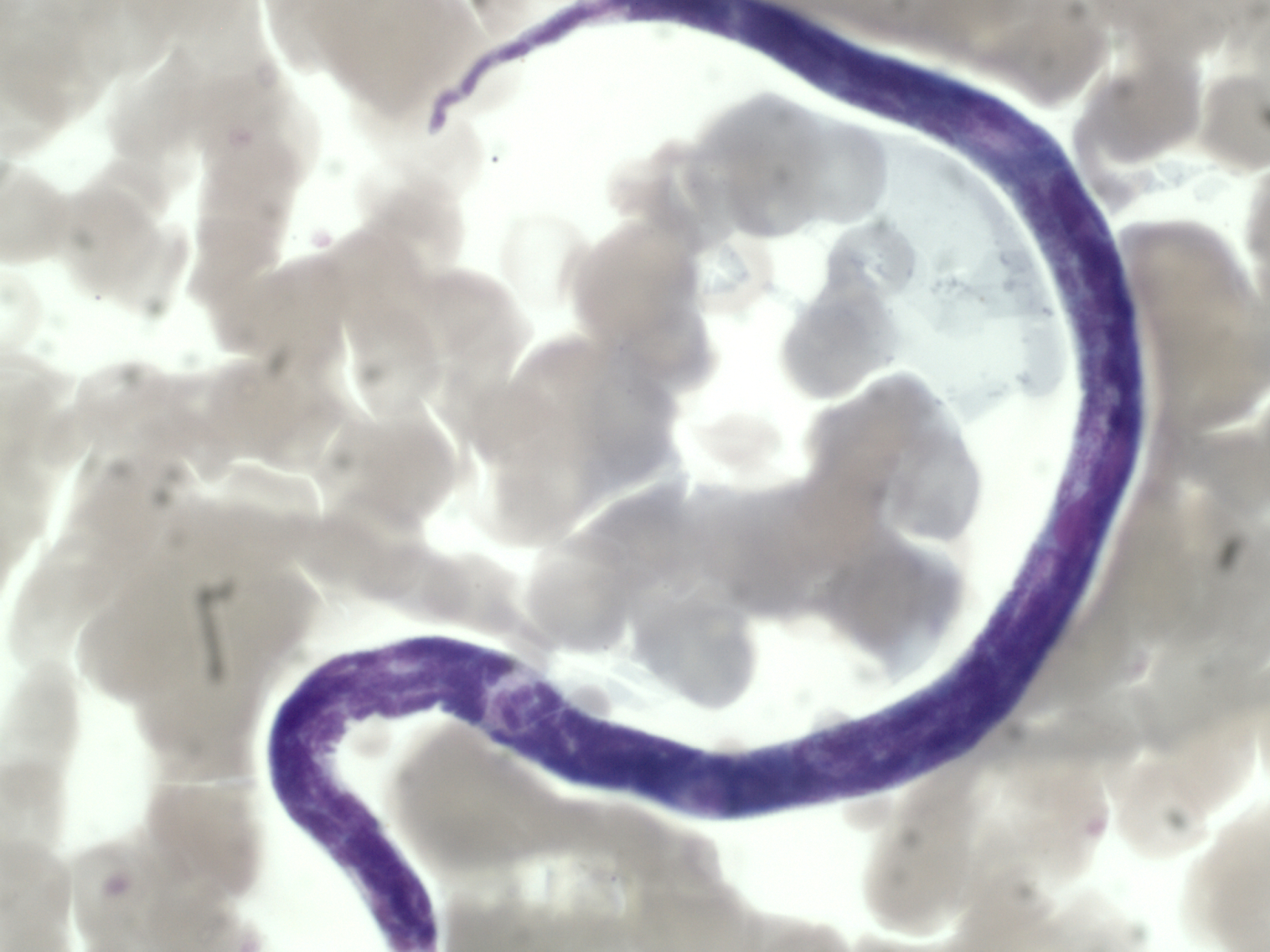Parasites tricking the immune system
Interview with
How do hosts attempt to fend off parasitic infections? We're not completely  defenceless against these attackers- animals have evolved an immune system to help protect themselves. And parasites have, in turn, evolved counter-measures to enable them to slip under our immune radar. How does an animal's body try to fend off attack from parasites? The University of Edinburgh's Rick Maizels studies how they work, as he explains to Ginny Smith...
defenceless against these attackers- animals have evolved an immune system to help protect themselves. And parasites have, in turn, evolved counter-measures to enable them to slip under our immune radar. How does an animal's body try to fend off attack from parasites? The University of Edinburgh's Rick Maizels studies how they work, as he explains to Ginny Smith...
Rick - Well, it's a big job. If you think of a phagocyte that can engulf a bacteria, that's not possible with a parasite that's 1,000 times bigger than the cell itself. So, the job of the immune system is to mobilise massive swarms of cells to surround the parasites and this seems to be conducted and orchestrated by the T-cell population, effector T-cells that makes cytokines that activate these swarms of cells.
Ginny - And I guess it must be quite different if you're trying to attack a parasite that's in the blood, say, like the malaria one versus a tick or something that's living on the body.
Rick - Yes. I think to exclude an ectoparasite is a somewhat simpler job for the immune system than dealing with something in the heart of the bloodstream.
Ginny - So, your body is sending these cells to attack the parasite. What do they actually do to it to kill it?
Rick - This is what we're working on at the moment. One idea is that they lay siege, they surround the parasite, they may deposit toxic proteins around the parasite, but they may also withdraw nutrients from the environment. And so essentially, starve the parasite to death.
Ginny - I imagine that the parasites have evolved ways to try get around it. So, what are they doing to counter our attack measures?
Rick - Well, very much so. Every parasite has its own sort of strategy but the ones we've found repeatedly coming up in both human parasites and in lab models is to pretend that the parasite is a little bit like our own body. To do this, it recruits an interesting set of T-cells which are the opposite of the ones I mentioned called the regulatory T-cells. We call them the health and safety officers of the immune system. They make sure that the immunity doesn't get out of hand. So, they exploit this by producing a molecule very like our own, which drives these regulatory T-cells and switches off the immune system.
Ginny - So, they're effectively pretending to be part of our own body so that we don't attack them.
Rick - Absolutely. They re-write rules of the immune system to their own advantage.
Ginny - Has that changed the way our immune systems respond in general?
Rick - Well, we think this leads on a little bit to what you were mentioning about whether the immune system overshoots in the absence of parasites because our body is tuned to expect parasites as part of our normal environment.
Ginny - So, we've been talking mainly about parasites in the blood but we mentioned things like head lice and that sort of thing as well. Is there anything that our bodies can do to try and avoid those kinds of critters?
Rick - Well, we have certain specialised cells. The one type is called basophiles which home-in on the skin where there's an ectoparasite and again, probably, toxic proteins are produced and the site of biting quickly becomes inimical to the ectoparasite that then has to leave.
Ginny - Is that why it can be so itchy when you've got a bite? Is it actually our own body's defences causing that itch?
Rick - In some cases, that will be the case. In other cases, the itch for example to a short-lived mosquito bite is an after effect and doesn't actually protect us from the vector.
- Previous Therapeutic parasites
- Next Frogs' legs, anyone?




Comments
Add a comment